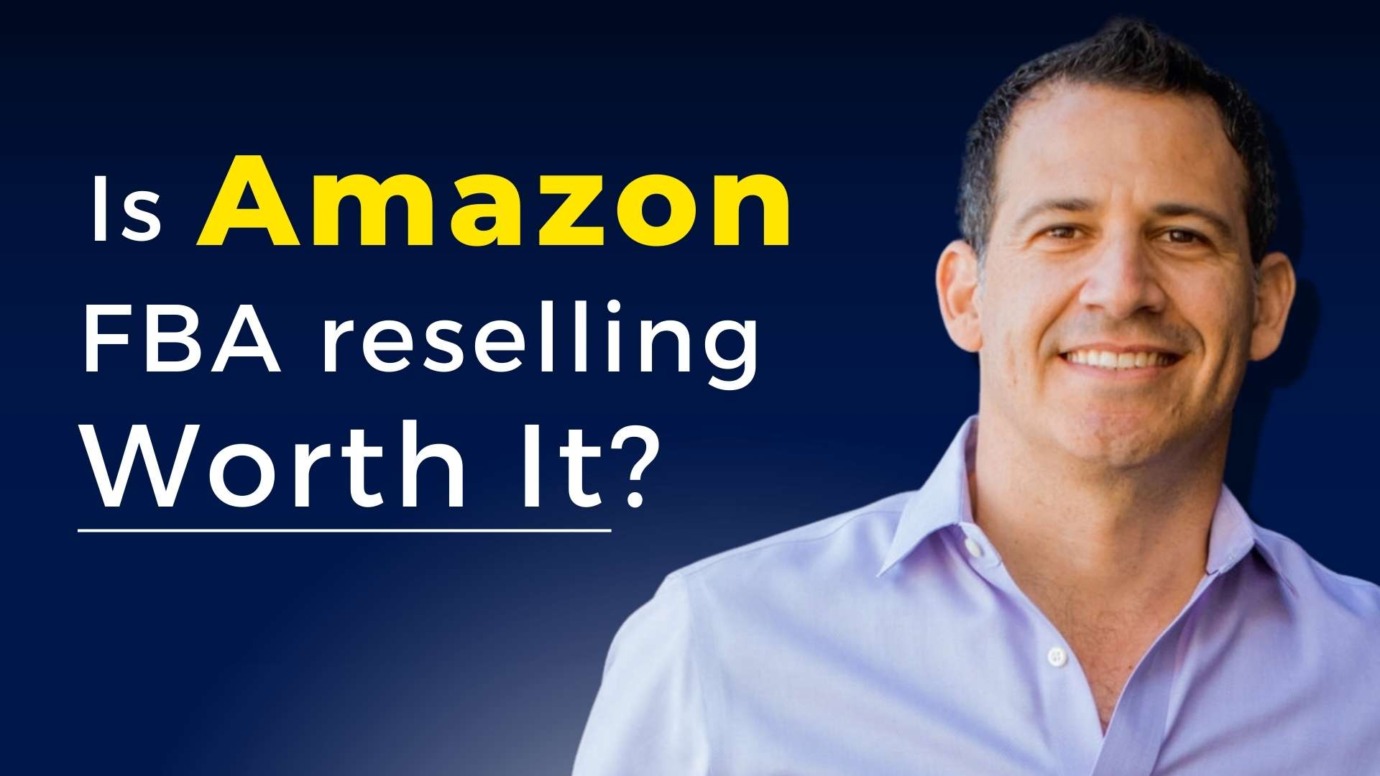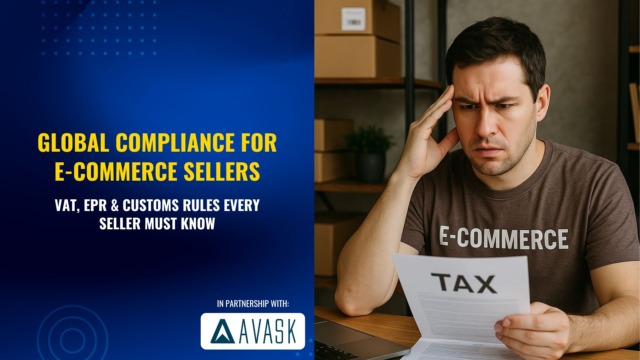
Book a FREE 15-minute consultation with an expert – Book Now
Is Reselling on Amazon Still Profitable in 2025? Insights from Veteran Seller Brian Landun

For many, Amazon is the ultimate dream—a platform that promises instant access to millions of buyers worldwide. But behind the glossy facade lies a complex marketplace filled with challenges that can make or break a seller’s journey. Is it still the right place to grow a business?
In an insightful conversation with Brian, a seasoned Amazon seller, we uncovered the hidden truths of selling on Amazon. From navigating strict regulations to balancing the rewards and risks of reselling, Brian shares his hard-earned lessons, providing a roadmap for both new and experienced sellers. Whether you’re just starting or looking to refine your strategy, this article breaks down everything you need to know about surviving and thriving on the world’s most competitive e-commerce platform.
How HSL Ventures Transformed from Wholesale to Amazon Powerhouse
Brian’s company, HSL Ventures, began its Amazon journey in 2014, leveraging decades of experience in wholesale and liquidation. With a foundation built on sourcing and distributing products efficiently, the team saw Amazon’s Fulfillment by Amazon (FBA) program as an opportunity to streamline operations and tap into a broader market. Initially, the idea was straightforward: use Amazon as a channel to clear out surplus inventory while testing the waters of e-commerce.
“We started by selling a few units a day. Before we knew it, we realized Amazon could be more than just a platform for clearing inventory—it could be a major part of our business.”
What began as an experiment quickly evolved into a strategic shift. The team at HSL Ventures discovered that Amazon’s infrastructure offered far more than just convenience—it provided a scalable model for growth. The speed and efficiency of FBA allowed them to distribute products nationwide with minimal overhead, reaching customers in two days or less without the need for extensive logistical investments.
This realization prompted a mindset shift within the company. What started as a side channel to liquidate stock became a core part of their strategy. Over time, HSL Ventures refined its approach, transitioning from simply moving existing inventory to leveraging analytics and market trends to make more informed purchasing decisions.
The flexibility of Amazon’s platform combined with the company’s wholesale expertise created a formula for success. It wasn’t long before the business began to scale significantly, showing the team that e-commerce wasn’t just a side project—it was the future.
Reselling on Amazon: Strategies, Challenges, and How to Succeed
Unlike many sellers who enter the market by developing private-label brands, Brian’s business focuses on reselling—a model that takes a distinct approach to success on Amazon. Instead of investing in product development, branding, and marketing from scratch, resellers leverage existing demand for established products, taking advantage of their proven market presence. This model can be less risky in some respects, as there’s no need to create demand from the ground up, but it also comes with its own set of hurdles.
One of the primary benefits of reselling is the ability to tap into products with an existing track record. Resellers can analyze Amazon’s marketplace data to identify high-performing listings and strategically position themselves on these listings to capture sales. This eliminates the need for extensive market education or consumer awareness campaigns. However, the simplicity of reselling ends there.
Operating as a reseller requires razor-sharp analytics to ensure profitability. Margins are often much thinner compared to private-label brands, meaning every decision—whether it’s sourcing, pricing, or logistics—must be calculated with precision. The competition is fierce, with multiple sellers often vying for the same listings. Resellers must also contend with fluctuating market dynamics, such as price wars and changes in Amazon’s policies, which can impact profitability overnight.
“For resellers, it’s all about buying effectively. You need to analyze the market, understand the demand, and ensure you’re not overspending on inventory,” Brian explains.
This approach requires significant adaptability. Resellers must be prepared to pivot quickly if a product becomes oversaturated, a supplier relationship falters, or Amazon’s algorithm shifts priorities. Ultimately, reselling on Amazon is a high-stakes balancing act, combining the agility of a trader with the precision of a data analyst.
Amazon’s Push for Authentic Brands: What Resellers Need to Know
One of the recurring themes in our discussion was Amazon’s growing preference for brands over resellers—a shift that has dramatically altered the playing field for sellers. As Amazon focuses on building a marketplace defined by authenticity and consumer trust, resellers face increasingly stringent requirements and challenges in maintaining their presence.
This shift is driven by Amazon’s ongoing efforts to combat counterfeit goods and ensure that consumers are purchasing genuine, high-quality products. However, the aggressive measures taken to enforce these policies often have unintended consequences. Legitimate resellers frequently find themselves caught in a web of compliance demands, account suspensions, or listing removals due to consumer complaints or misunderstandings.
“Amazon’s goal isn’t to eliminate resellers but to create a marketplace with authentic, credible products. Unfortunately, this often means legitimate sellers get caught in the crossfire of aggressive enforcement,” Brian explained.
For resellers, this environment necessitates a proactive approach to supply chain management. They must ensure their products come from verified and reputable sources, maintain thorough documentation of inventory origins, and be ready to provide proof of authenticity at any time. Even minor lapses in supply chain oversight can lead to severe disruptions, including account deactivations or revenue losses.
Why Diversification Is Key to E-Commerce Success in 2025
Relying solely on Amazon for business operations may seem convenient, but it carries significant risks—a reality many sellers come to understand when faced with account suspensions, sudden policy changes, or unexpected shifts in marketplace dynamics. A single issue, such as a flagged listing or an unsubstantiated consumer complaint, can disrupt operations and lead to financial strain.
Brian’s business serves as a prime example of the power of diversification. Recognizing the inherent vulnerabilities of relying exclusively on one platform, his company expanded its operations to include other e-commerce giants like eBay and Walmart. These platforms not only provide additional sales channels but also act as a buffer, ensuring that the business remains operational even if challenges arise on Amazon.
“Diversification isn’t just smart—it’s essential. Whether through other platforms or different revenue streams, sellers need to reduce their dependence on Amazon,” Brian emphasized.
Beyond selling on multiple platforms, Brian’s business took diversification a step further by offering advisory services through HSL Advisory Services. This initiative leverages the company’s expertise in managing inventory challenges and navigating complex e-commerce landscapes to help other businesses optimize their strategies.
Top Tips for New Amazon Sellers: How to Start Smart and Avoid Pitfalls
When asked whether he would recommend starting a business on Amazon today, Brian didn’t hesitate but emphasized the need for preparation:
- Understand Your Supply Chain: Ensure you have legitimate, well-documented sources for your products.
- Be Ready to Invest: Whether it’s in legal support, advertising, or inventory, starting on Amazon requires capital and strategic planning.
- Know the Risks: From account holds to copycat products, sellers must be ready to adapt and defend their business.
Listen and Watch the Full Podcast
Want to hear the full conversation with Brian and gain even more insights into the world of Amazon selling? Check out the links below:
- Listen to the Podcast: Stream it on your favorite platform.
- Watch the Podcast on YouTube: Dive into the discussion and see the experts in action.
Stay tuned for more episodes where we tackle the latest challenges and trends in e-commerce with industry leaders.
Legal Disclaimer: The articles published on our platform are for informational purposes only and do not constitute legal advice in any form. They are not intended to be a substitute for professional legal counsel. For any legal matters, it is essential to consult with us or a qualified attorney who can provide advice tailored to your specific situation. Reliance on any information provided in these articles is solely at your own risk.
Amazon Brand Registry – Discover for Free if You’re Eligible
Increase Your Chance of Getting a
Trademark to 96%
Subscribe to Our Newsletter
Sign up to receive valuable information on E-Commerce and intellectual property

